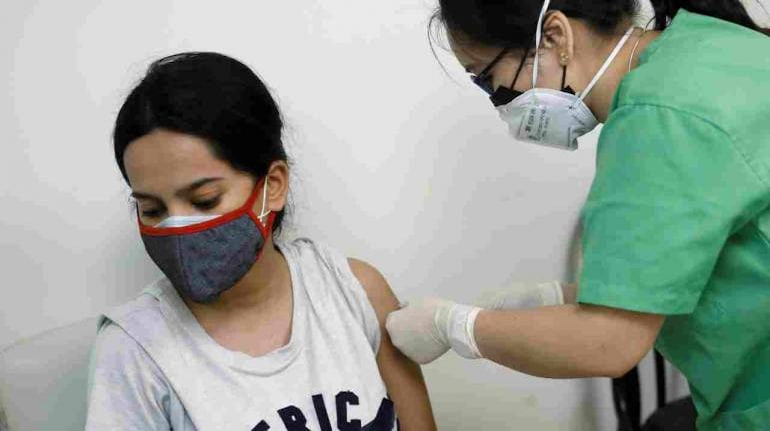



Rajesh Murthy* who lives in one of the largest residential gated communities in Bannerghatta in Bengaluru got his second dose of COVID-19 vaccination at the premises of his apartments.
“Last time, we had to go to a hospital and wait in a queue to get the first dose. This time, it is very smooth and convenient,” Murthy said.
Murthy got his jab at the vaccination drive conducted by Apollo Hospitals, Bannerghatta.
Apollo Hospitals has been working closely with apartment associations and resident welfare associations in Bengaluru, Hyderabad, Navi Mumbai and other cities for onsite administration of COVID-19 vaccines.
Apollo, on May 27, said it has completed 1 million vaccinations across 80 locations in India. It plans to make this a million every week in June and double that in July.
“We are on track to complete 20 million jabs by September 2021,” Shobana Kamineni, Executive Vice-Chairperson, Apollo Group of Hospitals, recently said.
The Union government has liberalised the procurement of COVID-19 vaccines from May 1 by allowing private hospitals and corporates to directly buy vaccines from manufacturers and administer them to people.
Serum Institute of India (SII) and Bharat Biotech have fixed the price of their vaccines, Covishield and Covaxin, at Rs 600 and Rs 1,200, respectively. Dr Reddy's has fixed Sputnik V price at Rs 995 per dose, including GST.
No cap on administration fee
While there is no cap on how much a hospital can charge as administration fee, most large private hospitals are charging between Rs 200 and Rs 300 over and above the procurement cost of the vaccine.
For onsite vaccination, hospitals are charging an extra Rs 200 - Rs 300 per dose, but people, especially senior citizens, who are not able to travel to the vaccination centres or are finding it difficult to use the CoWIN platform, are not minding the extra price due to the convenience onsite vaccination offers.
Some hospitals have started drive-in vaccinations, and others are considering vaccinating people at their homes. However, there are risks to both.
Karnataka permits diagnostic chains as well
Currently, states have allowed only private hospitals to do inoculations. But Karnataka permitted even diagnostic chains such as Metropolis to do inoculation through camps and vaccine centres.
"We are already giving vaccinations in Bengaluru; it is a state decision. Most other states have allowed only hospitals. Karnataka allowed certain diagnostic labs. They gave us permission," Metropolis Managing Director Ameera Shah said.
"Right now, there is no vaccine available. It will become available next month or so. We are in talks with manufacturers to directly procure vaccines. We have 2,500 centres and home services capability. If vaccines are available and states permit us, we can do tens of thousands of inoculations per day," Shah said.
Even e-pharmacies like Pharmeasy, 1 mg, and Practo, among others, have plans to start COVID-19 vaccination.
While many states are not allowing home vaccinations due to concerns of vaccine wastage, delays in reaching the health facility in case of an adverse event and the challenges in maintaining the protocol of patient observation for 30 minutes after vaccination pose a problem to many.
Business case
At least for the next two years, COVID-19 vaccinations are expected to become an important revenue stream for private hospitals. Moneycontrol learns that a private hospital would make anywhere between Rs 150 - Rs 200 per every vaccination. According to an April 21 note from Jefferies India, private vaccinations can generate up to $1.4 billion in revenues in FY22.
Max Healthcare, which is doing 40,000-50,000 vaccinations per day, is excited about the opportunity.
“There are positive opportunities from both the cash flow and profitability standpoint, simply because the private healthcare sector is permitted to charge what it wishes," said Abhay Soi, Chairman and Managing Director, Max Hospitals, at the company's earnings call.
“On the back of this opportunity, we have a tremendous amount of consultations, antibody tests and so on and so forth. The size of the opportunity I believe is immense. It is only constrained by the number of vaccines available. The situation is expected to improve over the next few weeks," Soi said.
Soi says as more private participants enter, it will drive down administration charges.
Discover the latest Business News, Sensex, and Nifty updates. Obtain Personal Finance insights, tax queries, and expert opinions on Moneycontrol or download the Moneycontrol App to stay updated!
Find the best of Al News in one place, specially curated for you every weekend.
Stay on top of the latest tech trends and biggest startup news.